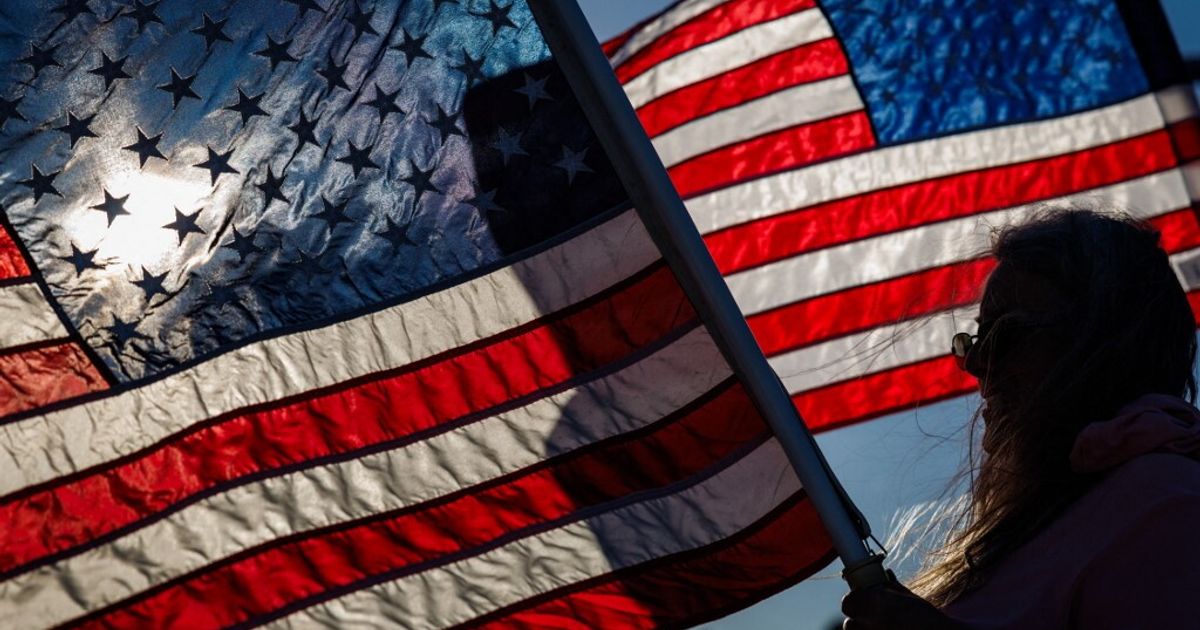Washington, Nov. 4. (Adnkronos) – America is increasingly polarized and divided with every election, this year even more between women and men, wives against husbands. Women have long been a key component of the electoral coalition that sends the Dems to the White House, but never like this year, with <a href="http://www.world-today-news.com/donald-trump-whats-behind-the-us-presidents-baltimore-attack/" title="Donald Trump: What's behind the US President's Baltimore attack”>Kamala Harris vs Donald Trump, the prime mover of the decisions that led to the abolition of the constitutional right to abortion, the ‘gender gap’ appears decisive.
If in 2016 Hillary Clinton had an 11% advantage among women, Joe Biden had 12% in 2020, today the polls speak of Harris’ advantage among women of up to 17 points, 53% against 36% according to poll USA Today/Suffolk University. Which corresponds to a double-digit advantage, between 11 and 16 points, of the tycoon among male voters.
And in this scenario, the commercial that ‘Vote Common Good’, an association that tries to take control of the evangelical and Catholic vote away from the Republicans, has entrusted to the convincing voice of Julia Roberts, to suggest to women, in particular white women, is stirring things up. of the middle class of the suburbs, to ‘betray’ in the secrecy of the ballot box their husbands – who in a paternalistic way exhort them to vote ‘it’s your turn, dear’ – by choosing Harris rather than Trump.
“In the only place in America where women still have the right to choose, you can vote for whatever you want, and no one will ever know,” Roberts is heard saying in the commercial, a line that, aside from the reference to women’s reproductive rights under attack, has infuriated many Republicans, who have gone so far as to compare a woman who does not tell her husband who she is voting for to “one who has an extramarital affair”.
A nervousness that indicates the real fear that a ‘surge’ of women’s votes on November 5th could be decisive in counteracting the support that Trump gathers among men, and not just white men without degrees, the traditional hard core of the Maga. “If I look at the data, if only men voted, Trump would win, but women are making this a competitive election,” says Jackie Payne of the moderate women’s group Galvanize Action. Especially since dem strategists hope for ‘ghost voters’, voters, especially young people, who may be voting for the first time.
To motivate them, Harris put the defense of reproductive rights at the center of her campaign, as she did in the rally together with Beyoncè in Houston, but from the first moment of her take to the field, on July 21st after Joe Biden’s resignation, she never wanted to emphasize the historic nature of the possibility of becoming the first female president. Unlike what Clinton did 8 years ago who focused heavily – starting with her campaign slogan ‘I’m with Her’ – on challenging the last glass ceiling of American political power.
“Clearly I’m a woman, but the point that people really care about is having someone who knows how to do the job and has a plan that’s actually focused on them,” the vice president said in a recent interview with NBCnews, saying she wasn’t worried. that America may be less ready than we think to be led by a woman. A fear, however, that Dem strategists do not hesitate to confirm, explaining to the BBC that when respondents in polls say they do not consider Harris “ready” or with enough “personality” for the presidency, they are actually referring to her gender.
It is certainly no coincidence that Joe Biden recently said: “A woman can do everything a man can do and more, including being president of the United States.” But the most direct and explicit signal came, at two different times, from Barack and Michelle Obama who continue to be the superstars of the Democratic Party.
The first literally lambasted male voters, particularly African-Americans: “We are not seeing the same energy and support in all our neighborhoods that we saw when I was a candidate, and this concerns brothers”, denouncing “a whole series of excuses” to hide the fact “that you, and I’m talking to men, don’t like the idea of a female president”.
Behind the harshness of the message, the reality of the polls emerged which showed how Trump managed to gain ground among the male electorate of traditional Democratic reserves, African Americans and Hispanics. A few weeks later it was Michelle’s turn, who from the stage in Kalamazoo, Michigan, pointed the finger at the males who, in the majority, choose Trump who threatens the freedom and reproductive health of women: “If you don’t vote well in these elections, your wives, daughters and mothers will be collateral damage of your anger,” the former first lady said, acknowledging that voting for Trump may be a way of expressing one’s “anger.” “Are you as men ready to look into the eyes of the women and daughters you love to tell them that you supported this assault on our safety?” he concluded.
In the post #metoo world, Trump finally gained ground not only among African American and Hispanic males, but also within another fundamental component of the Dem coalition: young people, in particular the votes of young males from university frat houses, of sports fans, the so-called bro vote. “Young males often feel that if they ask questions they are labeled as misogynistic, homophobic or racist – John Della Volpe, director of polls at the Harvard Institute of Politics, explains to the BBC – feeling frustrated and misunderstood, they are sucked into the bro culture of Trump and Elon Musk They look at the priorities of the Democrats, women, abortion, LGBT culture, and ask themselves ‘what about us’?”.


